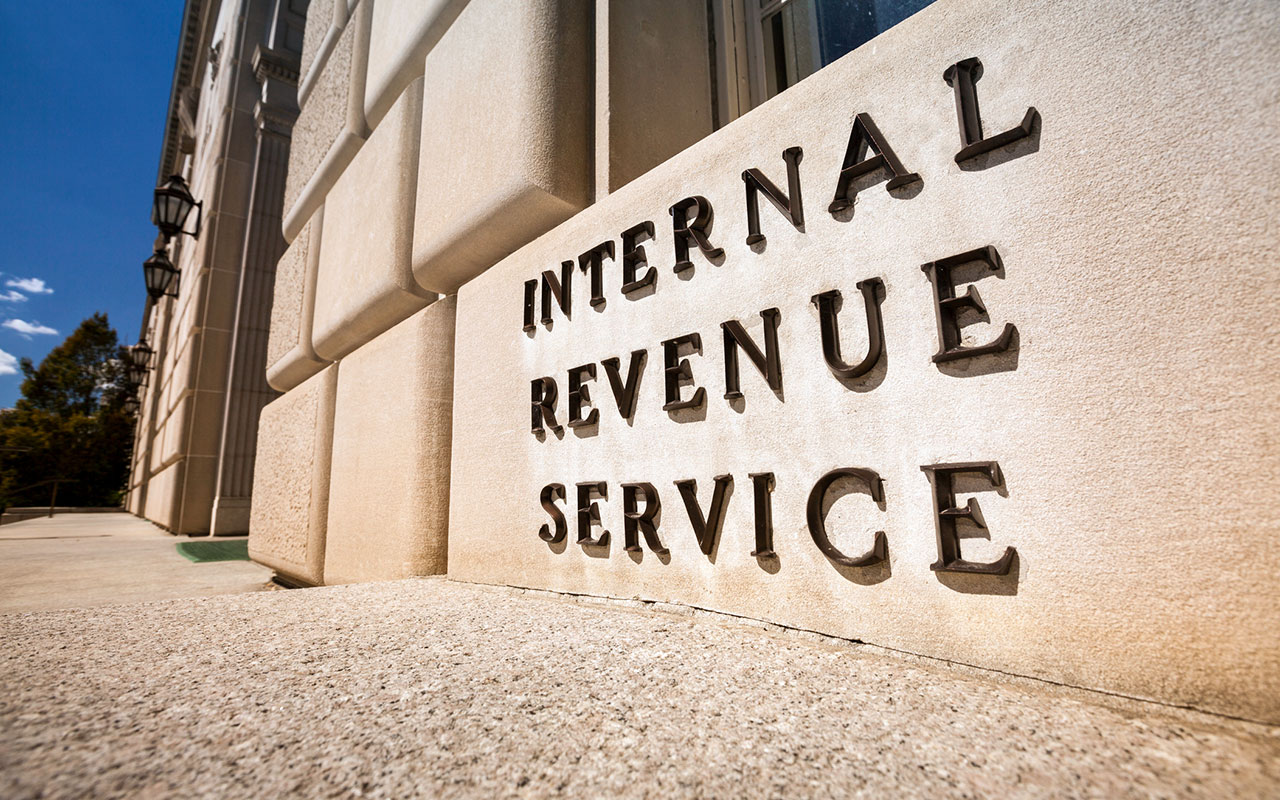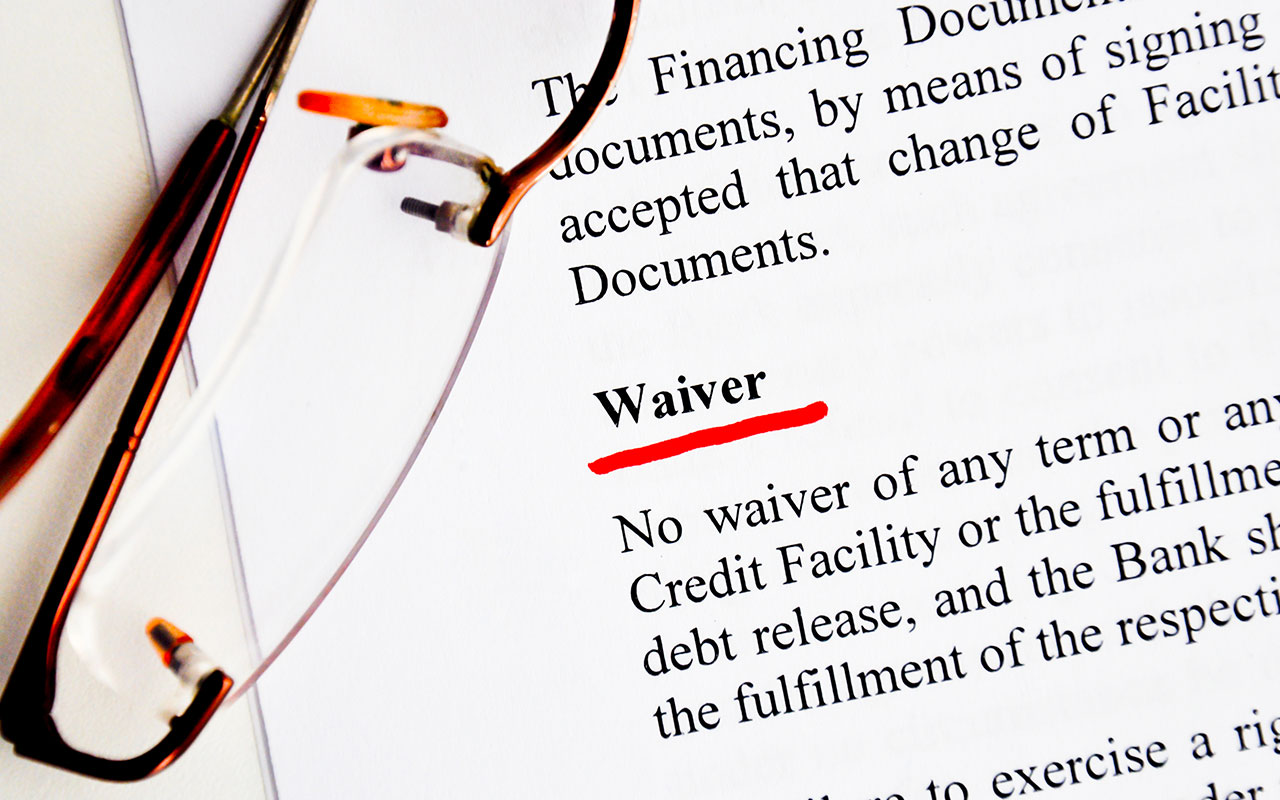IRS Reform: 12 Ways the Tax Agency Will Be More Taxpayer-Friendly Under the Taxpayer First Act
Let's face it…the IRS isn't the most popular government agency out there.


Profit and prosper with the best of Kiplinger's advice on investing, taxes, retirement, personal finance and much more. Delivered daily. Enter your email in the box and click Sign Me Up.
You are now subscribed
Your newsletter sign-up was successful
Want to add more newsletters?

Delivered daily
Kiplinger Today
Profit and prosper with the best of Kiplinger's advice on investing, taxes, retirement, personal finance and much more delivered daily. Smart money moves start here.

Sent five days a week
Kiplinger A Step Ahead
Get practical help to make better financial decisions in your everyday life, from spending to savings on top deals.

Delivered daily
Kiplinger Closing Bell
Get today's biggest financial and investing headlines delivered to your inbox every day the U.S. stock market is open.

Sent twice a week
Kiplinger Adviser Intel
Financial pros across the country share best practices and fresh tactics to preserve and grow your wealth.

Delivered weekly
Kiplinger Tax Tips
Trim your federal and state tax bills with practical tax-planning and tax-cutting strategies.

Sent twice a week
Kiplinger Retirement Tips
Your twice-a-week guide to planning and enjoying a financially secure and richly rewarding retirement

Sent bimonthly.
Kiplinger Adviser Angle
Insights for advisers, wealth managers and other financial professionals.

Sent twice a week
Kiplinger Investing Weekly
Your twice-a-week roundup of promising stocks, funds, companies and industries you should consider, ones you should avoid, and why.

Sent weekly for six weeks
Kiplinger Invest for Retirement
Your step-by-step six-part series on how to invest for retirement, from devising a successful strategy to exactly which investments to choose.
Let's face it…the IRS isn't the most popular government agency out there. It's not just that they take your money. They also have a (undeserved?) reputation for tough stances on deductions and credits, aggressive tax collectors, poor customer service and generally being difficult if you happen to disagree with them.
Wouldn't it be nice to have a kinder, gentler IRS? You'd still have to pay your taxes, but at least you wouldn't have to deal with some of the IRS's rougher edges anymore. Well, guess what…President Trump just signed a bill that will reform the IRS and make it a little more taxpayer-friendly. It's called the Taxpayer First Act, and it's the result of some rare bipartisan cooperation in Congress. Here are 12 ways the new law will improve the IRS's bad reputation.

Improved Customer Service
It's bad enough to be told that the IRS is digging into your tax return…but frustration levels go through the roof if you're tied up with an IRS customer-service representative who can't help you or runs you around in circles. That's why the Taxpayer First Act forces the IRS to develop a comprehensive customer service strategy. Among other things, the IRS will have to adopt best practices of private sector customer-service providers, update guidance and training materials for customer-service employees, and develop metrics and benchmarks for quantitatively measuring the progress of its customer-service strategy.

Greater Identity Theft Protection
There are several anti-identity theft measures in the Taxpayer First Act. Many require "behind-the-scenes" actions by the IRS to discover and prevent identity theft, but there are a few other new requirements that will affect taxpayers directly. For example, within five years, any concerned taxpayer—not just people who have already had their identity stolen—will be able to request a special identity protection personal identification number (IP PIN) to use when filing tax returns.
In addition, a single point of contact within the IRS will now be made available to any identity theft victim. The contact person or team is responsible for tracking the taxpayer's case to completion and coordinating with other IRS employees to resolve the taxpayer's issues as quickly as possible.
The IRS is also now required to notify a taxpayer if it detects or suspects the unauthorized use of his or her identity. The IRS has to let the taxpayer know how to:
- file an identity theft police report;
- allow law enforcement to access his or her personal information during the investigation;
- protect against further harm relating to the identity theft; and
- get an identity protection personal identification number.
Additional notice is required under the new law concerning whether (1) an investigation has been initiated and its status, (2) an investigation substantiated any unauthorized use of the taxpayer's identity, and (3) any action has been taken (such as a referral for prosecution). If someone is criminally charged with identity theft, the IRS now has to notify the taxpayer as soon as possible so that civil actions can also be pursued.

Accepting Credit and Debit Card Payments
Before the Taxpayer First Act, the IRS wasn't allowed to directly accept credit or debit card payments for taxes, because it wasn't allowed to pay the fees charged by the credit/debit card companies. To get around this, the IRS used third-party processors to accept these payments—but they charge their own fees.
Under the new law, the IRS is allowed to directly accept credit and debit card payments for taxes, as long as any fees are paid by the taxpayer. The tax agency is also required to seek out ways to minimize the fees when entering into contracts with the credit card companies. This will likely result in lower overall fees for taxpayers.

Greater Protection for Innocent Spouses
When a joint return is filed, it's not unusual for one spouse to sign the return without really knowing what's on it. But what happens when the spouse who completes the return cheats on the couple's taxes…is the other spouse responsible for any unpaid tax?
Generally, the answer is "yes"…but the tax code includes three types of "innocent spouse" provisions that can be used to get the spouse who simply signed the return off the hook. If the first two methods don't apply, the third can provide relief if, considering all the facts and circumstances, it's "inequitable" (i.e., unfair) to hold the unaware spouse liable for the taxes owed. The Taxpayer First Act makes it easier for innocent spouses to get this kind of equitable relief.
Courts reviewing an IRS denial of equitable relief can now consider newly discovered or previously unavailable evidence, too. Previously, there was no set rule allowing this, so spouses in one state were able to introduce new evidence while spouses in another state could not. In addition, spouses can now request equitable relief for any unpaid tax before the statute of limitations expires or for any tax already paid before the time limit for claiming a refund or credit ends.

Easier Settlement Procedures
If you can't pay your tax bill, the IRS might be willing to settle for a lesser amount under the Offer-in-Compromise (OIC) program. However, an up-front payment and application fee are currently required before the IRS will look at your offer. These payments and fees are generally waived for low-income taxpayers…but the IRS isn't required by law to do so. The Taxpayer First Act makes the OIC initial payment/application fee waiver mandatory for certain low-income taxpayers. This new rule applies to any taxpayer with adjusted gross income below 250% of the poverty level, which is based on location and size of the family.

Curbed Use of Private Tax Collectors
Did you know that the IRS hires private companies to help them collect unpaid taxes? They started outsourcing some tax collection duties in April 2017. However, as you may have guessed, there have been some problems with the program. One problem lawmakers worried about is low-income taxpayers entering into payment plans with the private companies that they can't afford. To prevent this from happening, the Taxpayer First Act bans private companies from collecting tax from any person with adjusted gross income below 200% of the poverty level, which is based on location and size of the family. Certain taxpayers on disability are protected from private debt collectors, too. Taxpayers are also be given more time to pay under installment plans offered by private companies…from a maximum of five years to seven years.

Limited Seizure of Property
The ability to take your property is one of the IRS's most powerful enforcement tools…and it doesn't just apply when you fail to pay your taxes. For example, cash transactions over $10,000 must be reported to the government. If you break up payments or structure them in some other way to get around the reporting requirement, the IRS can seize any related property. The Taxpayer First Act limits this type of property seizure to situations where the property taken derived from an illegal source or the cash transaction was structured for the purpose of concealing criminal activity (e.g., money laundering). New post-seizure notice and hearing requirements must also be put in place to protect taxpayers who had property taken by the IRS for violating the reporting rules. Plus, if you get your property back after a hearing, any interest that comes along with it will now be tax-free.

Better Protection of Taxpayer Information
Tax returns and other taxpayer information are generally confidential and can't be disclosed to non-IRS employees. This is an important protection for taxpayers, but there are exceptions. For instance, outside attorneys and other contractors hired to help in special situations (such as complex litigation) can access taxpayer books, records, papers and other data obtained by summons. They can also participate in the questioning of witnesses summoned by the IRS.
The Taxpayer First Act clamps down on the disclosure of taxpayer information to these contractors. Contractors are no longer allowed access to any books, papers, records or other data obtained by summons, except when they need the information to provide expert evaluation and assistance to the IRS. In addition, only IRS employees are now able to question a summoned witness under oath.

Greater Access to Independent Review Process
You claim a sizable deduction on your tax return, but an IRS auditor says you're not eligible or that the amount deducted is too high. You go back and forth with the auditor, but you remain at an impasse. To avoid the hassle of litigation, you ask for an independent review of the auditor's decision by the IRS Office of Appeals…but they say no. Looks like it's off to court you go!
The IRS already has a process for reviewing its own decisions, but the law doesn't guarantee access to it. As a result, many tax disputes don't get a second look by the IRS before going to court. The Taxpayer First Act will make sure the IRS independent appeals process is available to all taxpayers with a legitimate claim. If a request for review is denied, the IRS will now have to provide written notice of the reason to the taxpayer and to Congress.
Before the dispute is reviewed, the IRS will also have to turn over its case file to individual taxpayers with adjusted gross income of $400,000 or less in the contested tax year (or business taxpayers with gross receipts of $5 million or less). This will make a big difference for taxpayers with limited resources who are up against the might of the IRS.

Earlier Notice of Third-Party Questioning
Say you're a business owner and your tax return is being audited. As part of its examination, the IRS wants to question one of your customers about a few transactions, which they can do. That could have a devastating impact on your business and reputation. Under previous law, the IRS at least had to give you "reasonable notice" before contacting other people. But that's such a squishy requirement. What's "reasonable"…a week, a day, an hour?
The Taxpayer First Act does away with the "reasonable" standard and establishes a hard, 45-day notice requirement before contact with a third-party can be made. In addition, the contact period with each third-party is now limited to one year. This gives you more time to reach out to the other person in advance to explain the situation, and prevents the IRS from hounding them forever.

Fewer "John Doe" Summonses
When the IRS thinks someone is not paying taxes but doesn't know his or her identity (e.g., holders of offshore bank accounts or investors in a tax shelter), it can issue a summons to a bank or other third party to get the name of the suspected tax cheat. This is called a "John Doe" summons. However, some people believe the IRS uses John Doe summonses to conduct unlawful fishing expeditions. To stop this practice, the Taxpayer First Act prevents the IRS from issuing a John Doe summons unless the information it seeks is closely related to the failure (or potential failure) to comply with the tax law and it identifies a specific tax code provision that is being violated.

Listening to the Taxpayer Advocate
The National Taxpayer Advocate (NTA) is on your side. This person is an IRS employee, but his or her job is to make sure all taxpayers are treated fairly and understand their rights. When the NTA identifies a problem affecting a group of taxpayers, he or she can issue a Taxpayer Advocate Directive requiring the IRS to make administrative or procedural changes to protect the rights of taxpayers, prevent an undue burden, ensure fair treatment or provide an essential service to taxpayers. However, there's concern about the IRS not paying enough attention to NTA directives. That's not good for taxpayers.
To make the IRS more responsive to NTA directives, the Taxpayer First Act forces the IRS to modify, reject or ensure compliance with any NTA directive within 90 days. In addition, the NTA is now able to appeal any modification or rejection. If that happens, the IRS must either ensure compliance with the directive or provide the reason for any other action. The NTA's annual report to Congress will also identify any directive that is not honored by the IRS in a timely manner.
Profit and prosper with the best of Kiplinger's advice on investing, taxes, retirement, personal finance and much more. Delivered daily. Enter your email in the box and click Sign Me Up.
Rocky Mengle was a Senior Tax Editor for Kiplinger from October 2018 to January 2023 with more than 20 years of experience covering federal and state tax developments. Before coming to Kiplinger, Rocky worked for Wolters Kluwer Tax & Accounting, and Kleinrock Publishing, where he provided breaking news and guidance for CPAs, tax attorneys, and other tax professionals. He has also been quoted as an expert by USA Today, Forbes, U.S. News & World Report, Reuters, Accounting Today, and other media outlets. Rocky holds a law degree from the University of Connecticut and a B.A. in History from Salisbury University.
-
 Dow Adds 1,206 Points to Top 50,000: Stock Market Today
Dow Adds 1,206 Points to Top 50,000: Stock Market TodayThe S&P 500 and Nasdaq also had strong finishes to a volatile week, with beaten-down tech stocks outperforming.
-
 Ask the Tax Editor: Federal Income Tax Deductions
Ask the Tax Editor: Federal Income Tax DeductionsAsk the Editor In this week's Ask the Editor Q&A, Joy Taylor answers questions on federal income tax deductions
-
 States With No-Fault Car Insurance Laws (and How No-Fault Car Insurance Works)
States With No-Fault Car Insurance Laws (and How No-Fault Car Insurance Works)A breakdown of the confusing rules around no-fault car insurance in every state where it exists.
-
 Should You Do Your Own Taxes This Year or Hire a Pro?
Should You Do Your Own Taxes This Year or Hire a Pro?Taxes Doing your own taxes isn’t easy, and hiring a tax pro isn’t cheap. Here’s a guide to help you figure out whether to tackle the job on your own or hire a professional.
-
 Don't Overpay the IRS: 6 Tax Mistakes That Could Be Raising Your Bill
Don't Overpay the IRS: 6 Tax Mistakes That Could Be Raising Your BillTax Tips Is your income tax bill bigger than expected? Here's how you should prepare for next year.
-
 Will IRS Budget Cuts Disrupt Tax Season? What You Need to Know
Will IRS Budget Cuts Disrupt Tax Season? What You Need to KnowTaxes The 2026 tax season could be an unprecedented one for the IRS. Here’s how you can be proactive to keep up with the status of your return.
-
 3 Retirement Changes to Watch in 2026: Tax Edition
3 Retirement Changes to Watch in 2026: Tax EditionRetirement Taxes Between the Social Security "senior bonus" phaseout and changes to Roth tax rules, your 2026 retirement plan may need an update. Here's what to know.
-
 A Free Tax Filing Option Has Disappeared for 2026: Here's What That Means for You
A Free Tax Filing Option Has Disappeared for 2026: Here's What That Means for YouTax Filing Tax season officially opens on January 26. But you'll have one less way to submit your tax return for free. Here's what you need to know.
-
 When Do W-2s Arrive? 2026 Deadline and 'Big Beautiful Bill' Changes
When Do W-2s Arrive? 2026 Deadline and 'Big Beautiful Bill' ChangesTax Deadlines Mark your calendar: Feb 2 is the big W-2 release date. Here’s the delivery scoop and what the Trump tax changes might mean for your taxes.
-
 Are You Afraid of an IRS Audit? 8 Ways to Beat Tax Audit Anxiety
Are You Afraid of an IRS Audit? 8 Ways to Beat Tax Audit AnxietyTax Season Tax audit anxiety is like a wild beast. Here’s how you can help tame it.
-
 States That Tax Social Security Benefits in 2026
States That Tax Social Security Benefits in 2026Retirement Tax Not all retirees who live in states that tax Social Security benefits have to pay state income taxes. Will your benefits be taxed?

